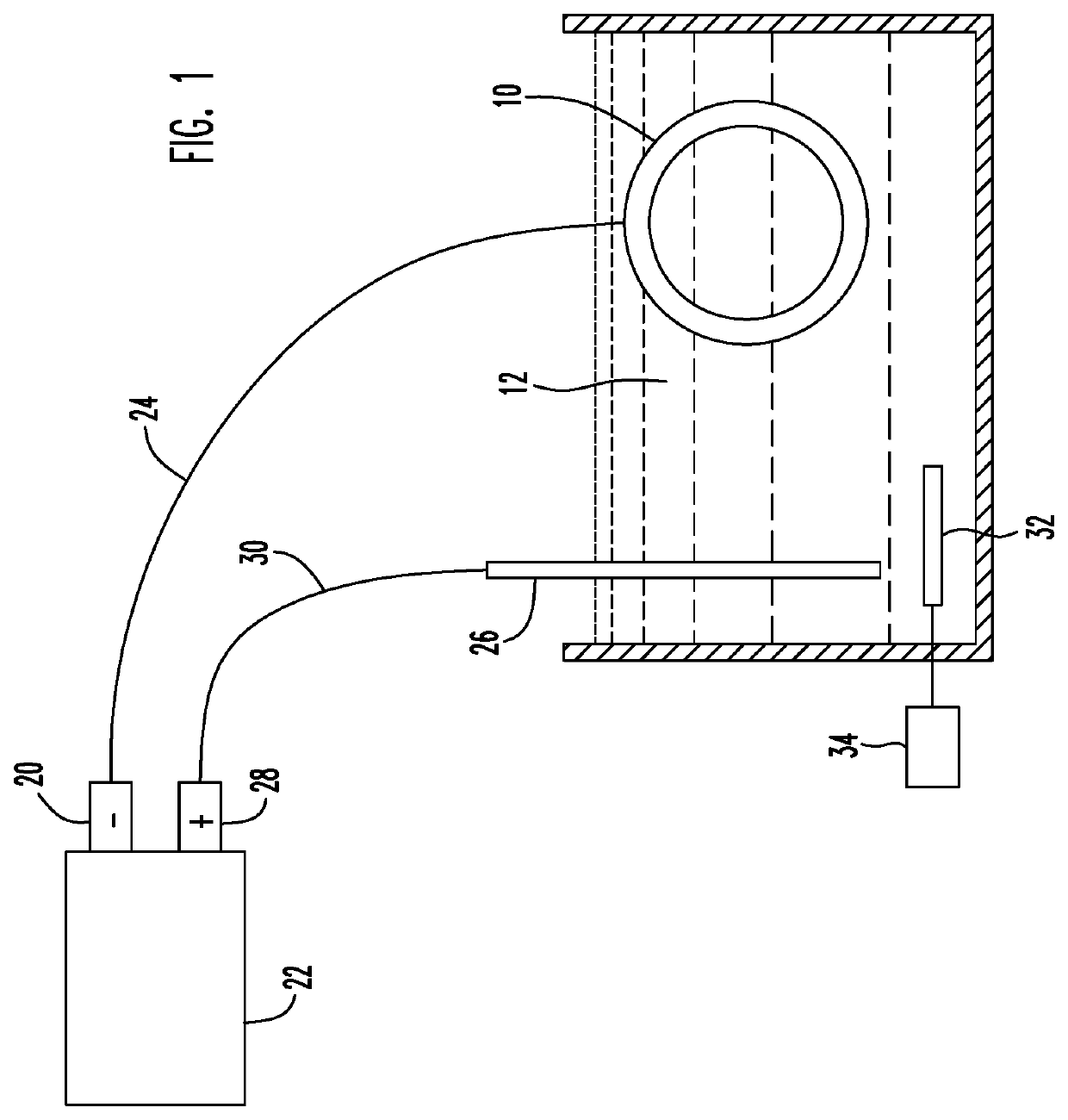Method for electrolytic cleaning of aluminum
a technology of aluminum alloy and electrolysis, which is applied in the direction of electrolysis process, electrolysis components, etc., can solve the problems of low rate, brake dust on aluminum wheels of trucks and airplanes, and road grim
- Summary
- Abstract
- Description
- Claims
- Application Information
AI Technical Summary
Benefits of technology
Problems solved by technology
Method used
Image
Examples
Embodiment Construction
[0022]FIG. 1 illustrates a used truck or airplane wheel 10 totally immersed in an electrolyte 12 for cleaning in accordance with the disclosed method. The wheel 10 is a conventional aluminum wheel having an external surface 16. See FIG. 2. It is desired to remove surface contaminants 14 from the surface 16 to enable recycling and reuse of the wheel.
[0023]The wheel 10 is connected electrically in series to the negative terminal 20 of a DC current source 22 by a conductor 24. A steel or iron electrode 26 is also immersed in the electrolyte 12 and is connected in series to a positive terminal 28 of the current source 22 by a conductor 30. The wheel 10 and the electrode 26 are electrically connected by the electrolyte 12.
[0024]The electrolyte 12 in a first embodiment of the disclosed method is an aqueous electrolyte formed solely of water and trisodium phosphate (TSP). TSP can be obtained commercially from UNIVAR USA INC., 3075 Highland Pkwy Ste 200, Downers Grove, Ill.
[0025]Water and T...
PUM
| Property | Measurement | Unit |
|---|---|---|
| temperature | aaaaa | aaaaa |
| temperature | aaaaa | aaaaa |
| temperature | aaaaa | aaaaa |
Abstract
Description
Claims
Application Information
 Login to View More
Login to View More - R&D
- Intellectual Property
- Life Sciences
- Materials
- Tech Scout
- Unparalleled Data Quality
- Higher Quality Content
- 60% Fewer Hallucinations
Browse by: Latest US Patents, China's latest patents, Technical Efficacy Thesaurus, Application Domain, Technology Topic, Popular Technical Reports.
© 2025 PatSnap. All rights reserved.Legal|Privacy policy|Modern Slavery Act Transparency Statement|Sitemap|About US| Contact US: help@patsnap.com


